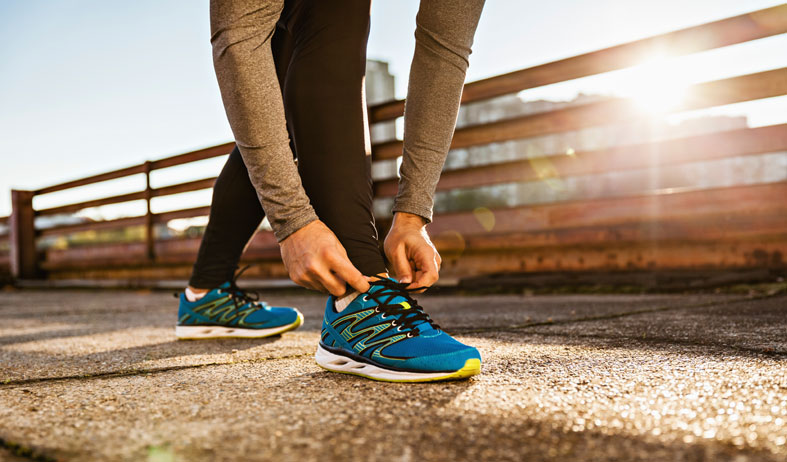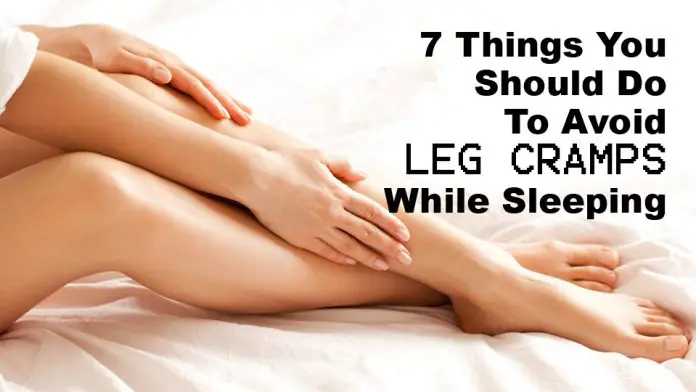Sleeping is supposed to relax your mind and body, especially after a full day of physical and mental activities. But imagine your well-deserved sleep is disrupted by a sudden leg cramp! Scenario: You are sleeping as usual and within a few hours, one of your lower legs start to experience sharp pain that jolts you awake. Most of the time you will feel powerless to do anything once the cramp starts to occur. The least you can do is try to relax because a leg cramp usually goes away by itself after 5 or 10 minutes, depending on the situation. Fortunately, you can try to reduce the occurences by practising these 7 Things You Should Do To Avoid Leg Cramps While Sleeping.
1) Remember To Keep Yourself Hydrated
One word: water. Your body needs sufficient amounts of water to ensure the cells, organs and tissues are able to function properly. Put it this way: when you are dehydrated and your body is low in fluids, your muscles will be prone to cramps and spasms. This will also lead to potential leg cramps while you are asleep. So, whether you are indoors working on your laptop or outdoors performing a workout, always remember to replenish your lost fluids. And even if you dislike drinking water, you can always boost the plain flavour with lemon or cucumber slices. Alternatively, you can “eat” your water by consuming food that has high water content such as cucumber, celery and watermelon.

2) Mind Your Alcohol Consumption
Here’s the thing about alcohol. It doesn’t matter whether you are drinking beer, red wine, whiskey or rum. Each of them tends to dehydrate your body since they are known to be diuretic. While a glass or two is okay, overconsumption of alcohol may cause pain and numbness in your limbs in the long run. This is commonly known as alcoholic neuropathy, a condition that causes eventual damage to your nerve tissue. And when you suffer from nerve problems, you will likely develop muscle spasms.

3) Your Body Needs Enough Nutrients
If your body suffers from nutrient deficiency, you will risk getting all sorts of health problems such as fatigue, muscle weakness & spasms as well as stiffness and cramps. This is especially true if you are lacking in B vitamins, potassium and magnesium. While these aforementioned vitamins and minerals can be obtained through supplement forms, nothing beats the real deal. Consider adding some of these foods to your daily diet: almonds, avocado, banana, tofu, whole grains, fatty fish (e.g. salmon and mackerel) and leafy greens.

4) Choose Proper Footwear
Never underestimate the importance of footwear regardless of leather shoes, sneakers or sports shoes. When you buy a pair of new shoes, make sure they fit well enough and always choose the ones that provide sufficient comfort and good arch support. Your feet will thank you for it and it also helps to prevent potential leg cramps during the night.

5) Do Some Stretching
If you know you are prone to leg cramps during the night, the least you can do is stretch your legs. Make a habit of performing some light stretching every night before you go to bed. This may help to minimise leg cramps while sleeping.

6) Drink Pickle Juice
This may sound like an odd idea but according to a 2010 study by the National Center for Biotechnology Information (NCBI), consuming a glass of pickle juice can “relieve muscle cramps within 35 seconds of ingestion”. This may be due to the vinegar content found in the pickle juice, which helps initiate a reflex that sends a message to our brains to relax the muscles and prevents cramps at the same time. Moreover, pickle juice contains salt — a well-known sodium compound responsible for replenishing electrolytes in our body system. Given its distinctly sharp taste, not everyone is able to stand the idea of drinking pickle juice. But if you want to man up and give it a try, pickle juice is easy to make. Cucumbers are among the most common base for pickling and to get the most out of the pickle juice, it’s best not to dilute the salt and vinegar (yes, the ones that are responsible for providing cramp relief) with water.

7) Your Sleeping Position Matters
How you sleep during the night actually matters a lot to prevent leg cramps. For instance, heavy bedding like sheets or blankets that tuck your feet may lead to potential leg cramps. This is likely happening because your feet are pointing downward. So, your best bet is to ensure that you stay untucked at the foot of the bed. You can try placing a pillow under the sheets to prevent your legs from stretching out. Alternatively, try this method by propping a pillow behind your knees.

https://www.facebook.com/tallypressmy/















